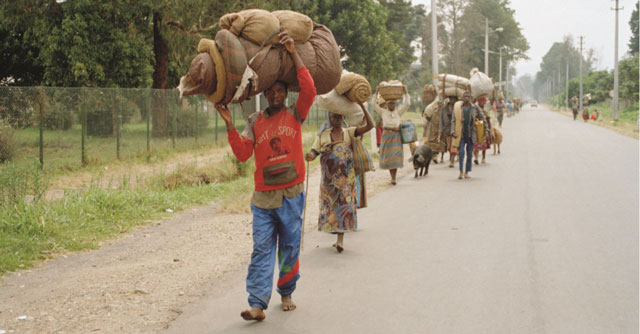
Rwanda refugees: Cessation Clause on status implemented
Kigali, Rwanda | THE INDEPENDENT TEAM & AGENCIES | 2018 started with a major transformational change for thousands of Rwandans living as refugees in countries around the world. Effective Jan.01, a Cessation Clause on their refugee status instituted by the United Nations High Commission for Refugees (UNHCR) came into force. The move means many Rwandans living abroad will no longer enjoy the rights, freedoms, and protections guaranteed by international protocols for refugees.
According to UNCHR policy, any former Rwandan refugee wishing to settle in the host country must now do so through other legal channels. They may also apply again for special refugee status. Those that do not adhere to the new regime might find themselves living a perilous life as illegal immigrants.
The UNHCR Cessation Clause was initially intended to come into force in December 2011 but was extended, first to June 30, 2013, and eventually to December 31, 2017. The Cessation Clause is provided for under the 1951 Refugee Convention.
The deadline was reaffirmed in late November 2017 when Rwanda government officials met in Geneva, Switzerland with UNHCR and delegations from countries that host Rwandan refugees. Some host countries sought clarification regarding Rwandan refugees seeking exemption from the Cessation clause. Other discussions focused on those seeking naturalisation or integration in the host countries. There was also discussion of logistical and financial challenges involved in the processes.
The Cessation Clause provided three options for the refugees: voluntary repatriation, invocation of refugee status and local integration in host country, and individual application for refugee status with convincing reasons.
UNHCR has also been offering cash packages to any Rwandan refugee who returns home before end of 2017. The commission has been giving US$250 to each adult Rwandan refugee and US$150 to any minor who returns home before Cessation Clause expires.
On top of the money, the returnees are also offered free medical insurance for a year, a free mobile phone and free transportation to any destination within the country.
The Rwanda government has been encouraging its citizens to return by assuring them that the country is safe and secure and ready to accommodate all Rwandan returnees.
MIDIMAR set transit centres to accommodate the returnees in southern Nyanza District, at Kijote and Nyarushishi on the Congo border.
About 3.4 million refugees have been repatriated since 1994, majority of them from Democratic Republic of Congo, according to Rwanda’s Ministry for Disaster Management and Refugee Affairs (MIDIMAR). UP to 2000 Rwandans have been returning home every year according to the Ministry. According to UNHCR statistics, up to 20,000 Rwandans were still living as refugees abroad by December 2017.
Rwandans have been rushing home to beat the deadline. The country welcomed over 11,000 returnees in the first eight months of 2017 compared to 5,580 in 2016.
With the coming into force of the Cessation Clause, however, the government will now not consider its citizens abroad as refugees any more.
Many Rwanda have fled their country from way back as 1959 to escape numerous social upheavals.
But UNHCR concluded over 10 years ago that the conditions that led to their flight no longer exist and they can return home to safety.
 The Independent Uganda: You get the Truth we Pay the Price
The Independent Uganda: You get the Truth we Pay the Price




It’s a matter ov praying tu god for his protection,love ad care ,, otherwise we also gve special thnx for united Nations ad other organizations for their aid,god will bless u abundantly,